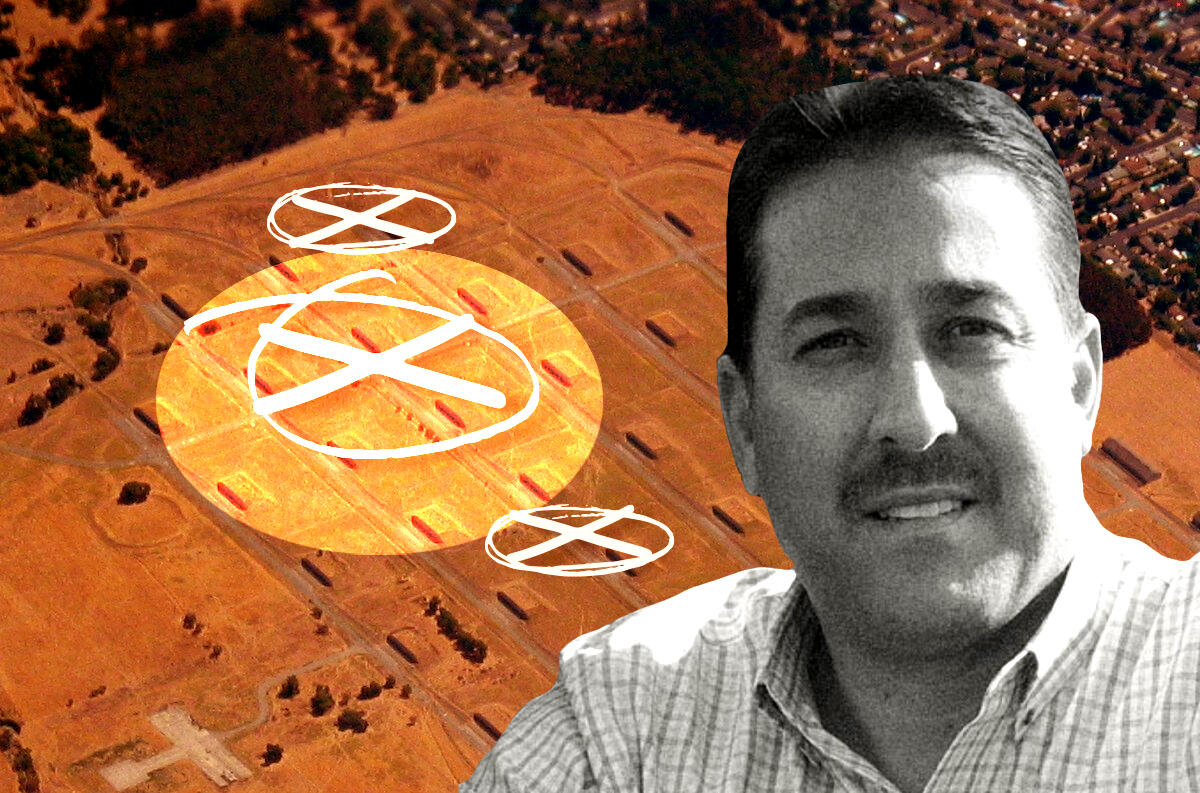 Trumark Homes to build 70 new townhomes in Concord, its first project in the East Bay city
Trumark Homes to build 70 new townhomes in Concord, its first project in the East Bay city
Trending
Developer says housing project at former Concord naval station infeasible
Concord First Partners concerned about costs, demands extensions and financial guarantees to move forward

A developer behind a proposal to build 13,000 units of housing at the former Concord Naval Weapons Station now says the project won’t pencil out.
Concord First Partners, led by the Contra Costa County-based Seeno family, said building the homes in the East Bay city is not economically feasible and wants a series of extensions and financial guarantees to move forward with the plan, the San Francisco Chronicle reported.
A combination of infrastructure costs, community benefits and land use requirements cause the project to be impracticable from an investment standpoint, the developer told the agency overseeing redevelopment of the mothballed naval base.
“We have re-examined our assumptions over and over. We are applying actual construction costs based upon our knowledge of the area,” Conford First said in a recent letter to the agency. “The conclusion is that the project, as we have analyzed it in its current form, does not work for any responsible development entity.”
Concord First Partners asked for a 90-day extension of the exclusive negotiating agreement, which is set to expire on May 26. In addition, the developer wants an extra year in which to get the project approved, which would move that date from 2024 to 2025.
The development partnership — led by Albert Seeno Jr., Discovery Builders President Louis Parsons and well-known Oakland builder Phil Tagami — is also asking the City of Concord to guarantee it will be reimbursed for third-party costs should the City Council eventually reject their proposal.
They ask that the “development and disposition agreement” — which outlines what the developer will pay for the land and when it will be transferred by the Navy — be shifted from the end of the approval process to the beginning.
The dispute comes more than three years after the previous developers, Lennar and FivePoint, walked away from the project after they were unable to come to terms with the Contra Costa County Building Trades Council.
That plan had called for 13,000 new homes, 2,700 acres of parks and 6 million square feet of commercial and academic space on the former base of 12,800 acres.
In October, the Concord City Council picked the Seeno group over two other builders, one of which was Brookfield Properties, among the largest developers in the world. In winning City Council approval, the Concord First group signed a “project labor agreement” with the building trades, something Lennar had been unwilling to do.
That allowed it to beat out Brookfield Properties, which is behind mega Bay Area projects like Pier 70, 5M and the Stonestown Galleria redevelopment, all of which are in San Francisco.
At the time Lennar quit the project, it had spent $15 million on its plan and the city had shelled out about $14 million.
“All we’re asking for is an agreement that confirms Concord First Partners as the Master Developer prior to our making a material financial investment into this opportunity,” Concord First Partners said in a statement. “We are ready to invest millions and millions of dollars and to devote multiple years studying and preparing environmental and development plans for this project.”
The Concord First Partners request has not gone over well with Concord city officials.
A report to the Concord City Council economic development staff recommends that a one-month extension on the exclusive negotiating agreement be granted, but that the rest of the request be turned down.
Guaranteeing that the developer be reimbursed for costs accrued during the entitlements — engineering, architecture, transportation studies — could leave the city on the hook for millions, said Guy Bjerke, Concord’s director of economic development and base reuse.
“That is asking for long-term trouble,” Bjerke said in an interview with the newspaper. “They are asking for an enforceable right to the property before they will spend any money on the specific plan or the environmental impact report.
“We understand they are looking to limit their political and financial risks,” he said, “but we have analyzed it and come to the conclusion that it would not be in the best interest of the Local Reuse Authority.”
[San Francisco Chronicle] – Dana Bartholomew
Read more
 Trumark Homes to build 70 new townhomes in Concord, its first project in the East Bay city
Trumark Homes to build 70 new townhomes in Concord, its first project in the East Bay city




